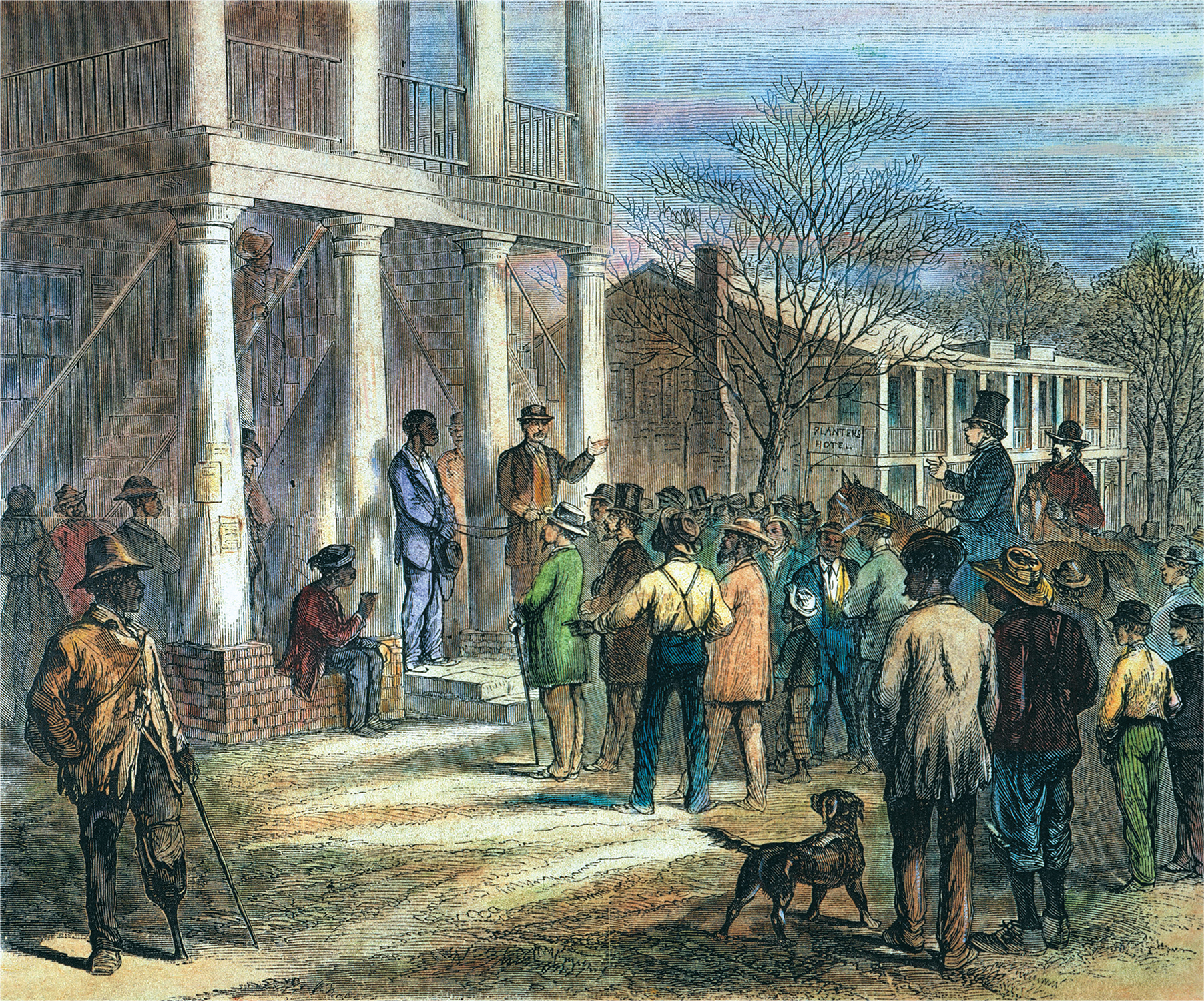White Southern Resistance and Black Codes
In the summer of 1865, delegates across the South gathered to draw up the new state constitutions required by Johnson’s plan of reconstruction. They refused to accept even the president’s mild requirements. Refusing to renounce secession, the South Carolina and Georgia conventions merely “repudiated” their secession ordinances, preserving in principle their right to secede. South Carolina and Mississippi refused to disown their Confederate war debts. Mississippi rejected the Thirteenth Amendment, and Alabama rejected it in part. Despite this defiance, Johnson did nothing. White Southerners began to think that by standing up for themselves they could shape the terms of reconstruction.
New state governments across the South adopted a series of laws known as black codes, which made a travesty of black freedom. The codes sought to keep ex-
At the core of the black codes, however, lay the matter of labor. Legislators sought to hustle freedmen back to the plantations. Whites were almost universally opposed to black landownership. Whitelaw Reid, a northern visitor to the South, found that the “man who should sell small tracts to them would be in actual personal danger.” South Carolina attempted to limit blacks to either farmwork or domestic service by requiring them to pay annual taxes of $10 to $100 to work in any other occupation. Mississippi declared that blacks who did not possess written evidence of employment could be declared vagrants and be subject to involuntary plantation labor. Under so-

Johnson refused to intervene. A staunch defender of states’ rights, he believed that citizens of every state should be free to write their own constitutions and laws. Moreover, Johnson was as eager as other white Southerners to restore white supremacy. “White men alone must manage the South,” he declared.
Johnson also recognized that his do-
In the fall elections of 1865, white Southerners dramatically expressed their mood. To represent them in Congress, they chose former Confederates. Of the eighty senators and representatives they sent to Washington, fifteen had served in the Confederate army, ten of them as generals. Another sixteen had served in civil and judicial posts in the Confederacy. Nine others had served in the Confederate Congress. One—